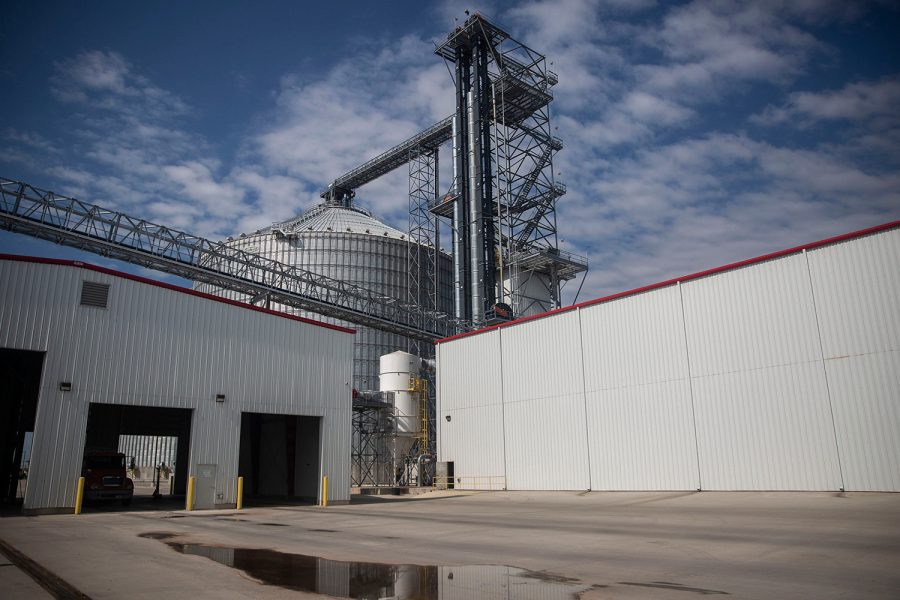UI biologists discover way to produce ethanol more efficiently with yeast strain
Biologists from the University of Iowa discovered yeast strains used for wine production contain alleles that make ethanol fermentation more efficient. The findings may lead to more efficient production of biofuels.
Kelsey Kremer/The Register via I
Elite Octane is a 200 million-gallon ethanol plant outside Atlantic in western Iowa, shown on Monday, Aug. 30, 2021.
December 8, 2021
Biologists from the University of Iowa discovered a new way to increase the efficiency of ethanol production through yeast strains.
The project began in summer 2018 and continued until the research paper was published in the journal Frontiers in Microbiology on Oct. 18. The findings may enhance the speed of future biofuel production.
Ethanol is made through the fermentation of biomass, like corn, using yeast. Yeast is used to produce wine, biofuels, grape juice, bread, and beer, among other things.
The UI biologists found a certain gene named MED15 — which exists in some human cells — contains unique alleles in the yeast strain used to make wine, said David Cooper, a biologist in the department of biology and co-author of the paper.
Cooper said he and his fellow researchers extracted the MED15 protein from yeast used to make wine and applied it to a lab yeast strain. Once applied to the lab strain, they were able to produce grape juice more efficiently, meaning the ethanol was produced more quickly, he said.
“The reason behind how this gene has such an effect is that it regulates transcription and so while we’re changing one gene, it has a more global impact on the gene that yeast is expressing, which can have many downstream effects, including improved ethanol production,” he said.
Transcription, he explained, is the process by which RNA is made from DNA, a necessary step before genes can be expressed.
Yishuo Jiang, a UI undergraduate student in the department of biology at the time of the research and current graduate student at the University of Illinois at Urbana-Champaign, said he suspects it will be a long while before more efficient ethanol production will be applied to the biofuel industry, as the findings can only be confirmed with regards to wine and grape juice production.
“How to engineer this regulatory gene, so biofuel production can be more efficient, still needs investigation,” he said.
He said the specific alleles in the MED15 of yeast used to make wine are better at regulating stress responses from ethanol and acidic acid.
After transcription, Jiang said, the stress regulating genes can turn on and quicken the ethanol production process.
Fermentation, he said, is when “yeast will consume glucose and convert the glucose into ethanol and this accumulative ethanol in the system can cause more and more stress for the yeast.”
The alleles carried by MED15 in winemaking yeast strains do not merely reduce the effects of this stress, he said, as the yeast strains without MED15 still regulate stress. The difference is it takes longer to regulate stress without the strain.
Cooper also said that the application of gene MED15 from the yeast strain in wine might have the potential for industrial application, which would increase the efficiency of biofuel production. He said it is still too early to tell for certain.
“It’s a possible general effect that if what we were looking at is better ethanol production that corresponds to this one gene, I think that has applications,” Cooper said. “I don’t think it’s too many steps in the future to have applications in bioethanol production.”



